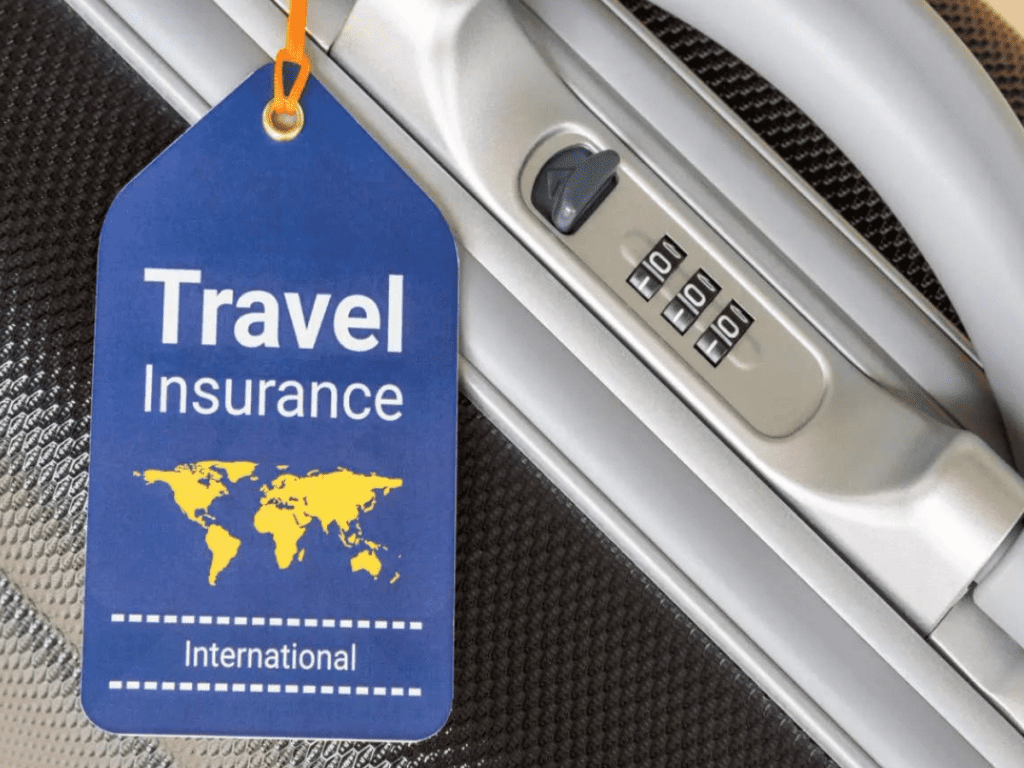Introduction
Traveling to new destinations can be one of the most exciting experiences in life. Whether it’s a quick weekend getaway, a long-term backpacking adventure, or a luxury vacation, the thrill of exploring new cultures, cuisines, and landscapes is unmatched. However, one important topic often overlooked in the planning process is travel insurance. Many travelers wonder: Do I really need travel insurance? Is it worth the extra cost? The answer depends on several factors, including your destination, the type of trip you’re taking, your personal health, and how much financial risk you’re willing to tolerate. This comprehensive breakdown will explore travel insurance from all angles and help every type of traveler make an informed decision.
Understanding What Travel Insurance Covers
Before diving into specific traveler profiles, it’s essential to understand what travel insurance typically covers. At its core, travel insurance is designed to protect you from unexpected events that could disrupt or derail your trip. Common components include trip cancellation or interruption coverage, emergency medical and dental coverage, medical evacuation, lost or delayed baggage, travel delays, and accidental death or dismemberment benefits. Some policies also offer additional benefits like coverage for adventure sports, rental car protection, and 24/7 travel assistance services. Each plan is different, so reading the fine print and understanding exclusions is crucial.
The Budget Traveler: Minimizing Costs Without Taking Huge Risks
For budget travelers, every dollar counts. Often traveling with limited funds, budget travelers tend to avoid any extra expenses that seem optional. However, travel insurance should not be dismissed outright. Low-cost insurance plans are available that offer essential protection like emergency medical coverage and trip cancellation. For example, getting sick or injured abroad without insurance can lead to devastating financial consequences. Even minor treatments in foreign countries can cost hundreds of dollars, and major incidents can run into thousands. Budget travelers should at least consider a basic medical plan to avoid crippling debt in case of emergency.
The Luxury Vacationer: Protecting Your Investment
Luxury vacations involve significant financial investment. From first-class flights and five-star hotels to guided tours and exclusive experiences, the costs can add up quickly. For luxury travelers, travel insurance is almost non-negotiable. Trip cancellation or interruption coverage becomes extremely valuable when your prepaid, non-refundable reservations total in the thousands. Factors like illness, family emergencies, or even severe weather events could force a last-minute cancellation. Comprehensive travel insurance ensures that you won’t lose your investment if something unforeseen happens before or during your trip.
The Adventure Seeker: Covering High-Risk Activities
Adventure travelers often engage in activities that come with higher risks, such as mountain climbing, scuba diving, skiing, bungee jumping, or even motorbike touring. Not all travel insurance policies automatically cover these high-risk activities. Adventure seekers should look for specialized plans that include coverage for adventure sports. These policies usually provide broader medical coverage limits, evacuation benefits from remote locations, and specific protection against injuries sustained during risky activities. Without this coverage, adventurers may find themselves facing enormous out-of-pocket expenses if something goes wrong.
The Business Traveler: Safeguarding Work-Related Trips
Business travelers usually have tightly packed schedules and non-flexible plans. Missed flights, lost luggage, or last-minute cancellations can disrupt important meetings and cause professional setbacks. Corporate travel insurance often covers trip delays, missed connections, and lost work equipment like laptops or presentation materials. Additionally, business travelers frequently travel to multiple international destinations in a short time, increasing exposure to travel-related risks. Multi-trip annual insurance plans can provide continuous coverage for frequent business travelers, offering peace of mind and ensuring that work commitments are protected.
The Family Vacationer: Managing Group Risks
Traveling with family, especially with young children or elderly relatives, presents unique challenges. Illnesses, accidents, and travel delays can quickly turn a dream vacation into a logistical nightmare. For families, travel insurance becomes a practical safeguard. It covers the cost of rescheduling flights if a child falls ill, provides medical coverage for emergencies, and offers protection against lost or delayed baggage containing essential items like baby supplies or medications. Some family-oriented travel insurance plans even offer coverage for kids at no additional cost when adults purchase a policy. This makes family coverage more affordable while ensuring everyone is protected.
The Long-Term Traveler: Covering Extended Journeys
Long-term travelers, such as digital nomads, gap-year students, or retirees on extended trips, face a different set of challenges. Traditional short-term travel insurance plans usually cover trips up to a specific number of days, typically 30 to 90 days. Long-term travelers need policies designed for extended durations, sometimes offering continuous coverage for six months to a year or more. These plans often include ongoing medical coverage, trip interruption, and even limited coverage for returning home during the policy period. For anyone embarking on months-long journeys, long-term travel insurance provides both flexibility and protection.
The International Student: Health and Trip Protection Abroad
Students studying abroad are often required to carry health insurance as part of their visa requirements. However, many standard health insurance plans from home countries do not provide coverage outside national borders. Specialized international student insurance plans are available to cover medical treatment, emergency evacuation, mental health care, and even academic interruption due to medical issues. These plans ensure that students can focus on their education without worrying about unexpected medical bills or having to cut their studies short due to unforeseen events.
The Senior Traveler: Managing Health Risks Abroad
Senior travelers often face higher risks while traveling, especially when it comes to health-related emergencies. Many standard travel insurance policies have age limits or exclusions for pre-existing conditions. Seniors should look for policies that specifically cater to older age groups and offer coverage for existing health conditions. Medical evacuation coverage is especially important, as seniors may need specialized care unavailable at their destination. Choosing the right travel insurance plan allows seniors to enjoy their trips with confidence, knowing that they have access to proper medical care if needed.
The Frequent Flyer: Year-Round Peace of Mind
For travelers who take multiple trips annually, purchasing single-trip travel insurance each time can become expensive and cumbersome. An annual multi-trip insurance plan offers a cost-effective solution. These plans provide continuous coverage for all trips taken within a year, with a maximum duration limit per trip, typically ranging from 30 to 90 days. This type of insurance saves time and money for frequent flyers, offering convenience and consistent protection.
The Domestic Traveler: Is Travel Insurance Still Necessary?
Many people assume that travel insurance is only relevant for international travel. However, even domestic travelers can benefit from certain types of coverage. Non-refundable hotel bookings, flight delays, or medical emergencies far from home can all lead to unexpected expenses. Domestic travel insurance can help cover these costs, offering protection for trip cancellations, interruptions, and even roadside assistance in some plans. For anyone traveling far from their hometown, domestic travel insurance provides an extra layer of security.
The Cruise Passenger: Addressing Unique Maritime Risks
Cruises present unique risks compared to other forms of travel. If a passenger falls ill before departure, they might miss the cruise entirely and lose the money invested in the trip. Once onboard, medical facilities are limited, and evacuation at sea can be astronomically expensive. Cruise-specific travel insurance plans cover medical emergencies, evacuation, missed connections, and shipboard delays. For cruise passengers, having tailored coverage is highly recommended to address the specific risks of maritime travel.
The Last-Minute Traveler: Protection Against Unforeseen Changes
Last-minute travelers often book flights and accommodations close to their departure date, leaving little room for flexibility. Travel insurance helps cover sudden cancellations, flight delays, and lost baggage. Even though the window for purchasing insurance before departure is narrow, many providers offer immediate coverage once the policy is activated. This ensures that spontaneous travelers aren’t left vulnerable to financial losses caused by unforeseen disruptions.
The Backpacker: Affordable Coverage for Extended Adventures
Backpackers typically travel for extended periods and on tight budgets, often moving between multiple countries. Affordable backpacker insurance plans are available that offer essential medical coverage, theft protection for belongings like backpacks and electronics, and emergency evacuation services. Given the unpredictable nature of backpacking, including stays in hostels and travel on budget transport, having insurance can be a financial lifesaver if something goes wrong.
Evaluating Your Personal Risk Tolerance
Ultimately, the decision to purchase travel insurance comes down to your personal risk tolerance. Ask yourself the following questions: Can I afford to lose my trip investment if something happens? Am I comfortable handling a medical emergency in a foreign country on my own? Would I be okay with paying out-of-pocket for emergency evacuation or extended hotel stays due to flight cancellations? If the answer to any of these questions is no, then travel insurance is likely a wise investment for you.
Common Myths and Misconceptions About Travel Insurance
One reason travelers hesitate to buy insurance is the abundance of myths surrounding it. Some people believe their credit card offers enough protection, but many credit card benefits are limited and conditional. Others assume their existing health insurance will cover them abroad, which often isn’t the case. Additionally, many travelers think that if they are healthy and young, they don’t need coverage. The reality is that accidents, theft, and travel disruptions can happen to anyone, regardless of age or fitness level.
When Is It Okay to Skip Travel Insurance?
There are scenarios where skipping travel insurance may be a calculated risk. If you’re taking a short domestic road trip with refundable bookings and you have comprehensive health insurance that covers you nationwide, buying travel insurance might be unnecessary. Similarly, if your total prepaid travel expenses are minimal, you may decide that the financial risk isn’t significant enough to warrant insurance. The key is to make this decision after evaluating all possible risks, not just as a way to save money.
Tips for Choosing the Right Travel Insurance Policy
When selecting a travel insurance plan, consider the following tips:
- Assess your trip type, destination, and length.
- Calculate your total prepaid, non-refundable costs.
- Consider your health status and any pre-existing conditions.
- Check if your planned activities are covered.
- Read policy exclusions carefully.
- Compare multiple insurance providers for coverage limits and premiums.
- Confirm whether the policy includes emergency evacuation and 24/7 support.
By following these guidelines, you can find a plan that meets your specific needs and provides appropriate protection for your journey.
Final Thoughts: Is Travel Insurance Worth It?
While travel insurance adds to your upfront trip cost, it offers invaluable peace of mind. Unpredictable events like medical emergencies, trip cancellations, or natural disasters can turn even the most carefully planned trip into a financial and emotional crisis. Travel insurance acts as a safety net, ensuring that you’re not left alone to deal with the aftermath of unexpected disruptions. For most travelers, the small investment in insurance far outweighs the potential risks of traveling without it. Whether you’re a backpacker, business traveler, family vacationer, or luxury tourist, having the right coverage allows you to focus on enjoying your journey with confidence and security.

